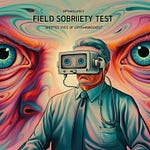I talk with Noah Pesola, a former Montana State Trooper and private investigator with a background in drug recognition evaluation and field sobriety testing.
Noah shares the training process and certification requirements for field sobriety testing, emphasizing the importance of proper training and execution for accurate results.
He also discusses the limitations of field sobriety testing and the potential for false positives. Noah highlights the impact of medical conditions on test results and the need for officers to consider the totality of the circumstances when evaluating impairment.
He also touches on advanced training in drug detection and the role of drug recognition experts in DWI/DUI cases.
About Noah Pesola:
Noah Pesola is a former Montana State Trooper and a private investigator. He holds degrees in criminology, criminal justice, and psychology, with a minor in forensic science.
Noah has extensive training in drug recognition evaluation and field sobriety testing, and he has worked on numerous DWI/DUI cases throughout his career. He is the owner of Pesola Inc. LLC, a private investigation and consulting firm specializing in probable cause expansion of stops related to drugs and alcohol.
Key Takeaways:
Proper training and execution are crucial for accurate field sobriety testing results.
Field sobriety tests can be highly accurate indicators of impairment when performed correctly.
False positives can occur if officers are not properly trained or if they misinterpret the clues of impairment.
Medical conditions and other factors can affect test results and should be considered during evaluations.
Advanced training, such as drug recognition evaluation, can provide additional insights into drug impairment.
Notable Quotes:
"They're very accurate as long as they're being done in the way that they're supposed to be done." - Noah Pesola












